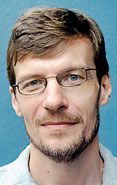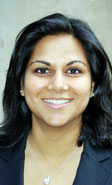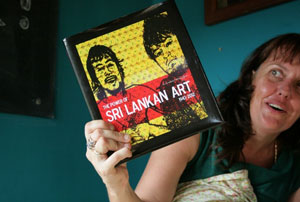‘People more interested in the Queen than me’
For Michael Meyler being declared a Member of the Most Excellent Order of the British Empire (MBE) has come as something of a surprise. Having lived in Sri Lanka for more than 25 years, Michael is being recognized for his ‘services to the English language’. It’s a Jubilee year (which many people have assured him is a vintage year for receiving the Royal blessing) and Michael will soon be vacationing in the UK with his family – but he doesn’t have plans to collect his award from Buckingham Palace: “For me that the MBE is awarded by the Queen is not necessarily the big part of the story�I think it makes more sense to receive the award locally from the High Commission because to me the relevance of the award is here in Sri Lanka and not in London.”

Michael Meyler
Michael used to teach English as well but currently teaches spoken Sinhala and Tamil at institutions like the British Council and the British High Commission in Colombo. His Tamil is very rudimentary, he clarifies, explaining that he teaches it in partnership with a colleague who speaks the language fluently; they work in tandem, each playing off the strengths of the other. Outside the classroom, he has been invited to participate in the Galle Literary Festival and has served as a moderator more than once. He published the trilingual children’s book ‘Keerthihan’s Kite’ and created a DVD and illustrated flashcards of the Sinhala and Tamil alphabets to accompany it. His interest in editing led him to work with local writers like Lal Medawattegedara and Manuka Wijesinghe. Notably, as a member of the panel of judges that awarded Shehan Karunatilaka the 2008 Gratiaen Prize, he went on to help edit the local edition of ‘Chinaman’.
Over the course of his stay on the island, Michael has read a great deal of fiction by Sri Lankans, but he doesn’t see himself as an authority on the subject: “I don’t consider myself to be a literary expert,” he says, “I haven’t studied literature and have certainly never attempted to write it.” His interest, instead, is in the form English has taken in Sri Lanka. It’s been five years since Michael published ‘A Dictionary of Sri Lankan English’. The book has gone through three runs and has sold 2,000 copies – a respectable number for the Sri Lankan market.
“I think that it’s well known that there are many, many varieties of English around the world, and they’re equally rich in their own ways,” says Michael. “I don’t think Sri Lankan English is inherently richer than any other varieties of English, be they Indian or South African or Irish English. Still it has its own unique flavour…it’s something that’s distinctly Sri Lankan.”
Exploring how language can be a reflection of culture is Michael’s interest and he takes care to emphasise that he’s never dictated how a language should be used. “I’ve tried to explain how the language is used instead,” he says. His dictionary contained 2,500 examples of words and expressions, characteristic of the English spoken in Sri Lanka and he continues to add to it online on his website www.mirisgala.net. Michael still feels tied to the book in a very real way: “One of the problems when you publish your own book is that you can’t put it behind you�You’re constantly responsible for things like marketing it.” So far, the burden has been light and the responses of readers encouraging, for most part.
His latest project is more ambitious – Michael is working on a trilingual dictionary. “In theory, it’s a simple project,” he says. So far he’s working with roughly 1,000 entries, each of which includes the word in its Sinhala, Tamil and English form. “The idea was that it was going to be a small dictionary for beginners to give them the very basic vocabulary they needed to speak colloquial Sinhala or Tamil,” Michael explains, adding, “It grew to be much larger than I expected.” The project got more complicated in part because he couldn’t resist adding the “extra bits” such as grammar and usage notes. He’s coming closer to completing it though, and hopes it will still prove useful to his target audience.
Meanwhile, he’s pleased to have been placed on Queen Elizabeth II’s Birthday Honours List for 2012 – even if he thinks the ‘British Empire’ is an anachronistic title that ought to have been phased out long ago. “I don’t want to sound ungrateful, this is a very prestigious award and I am honoured,” he says. However, he’s amused to find that once the congratulations are done, he’s still left fielding the question of whether he’s going to meet Elizabeth II herself. “I’ve noticed people seem to be a bit more interested in the Queen than they are in me,” Michael says, laughing.
comments powered by Disqus


















